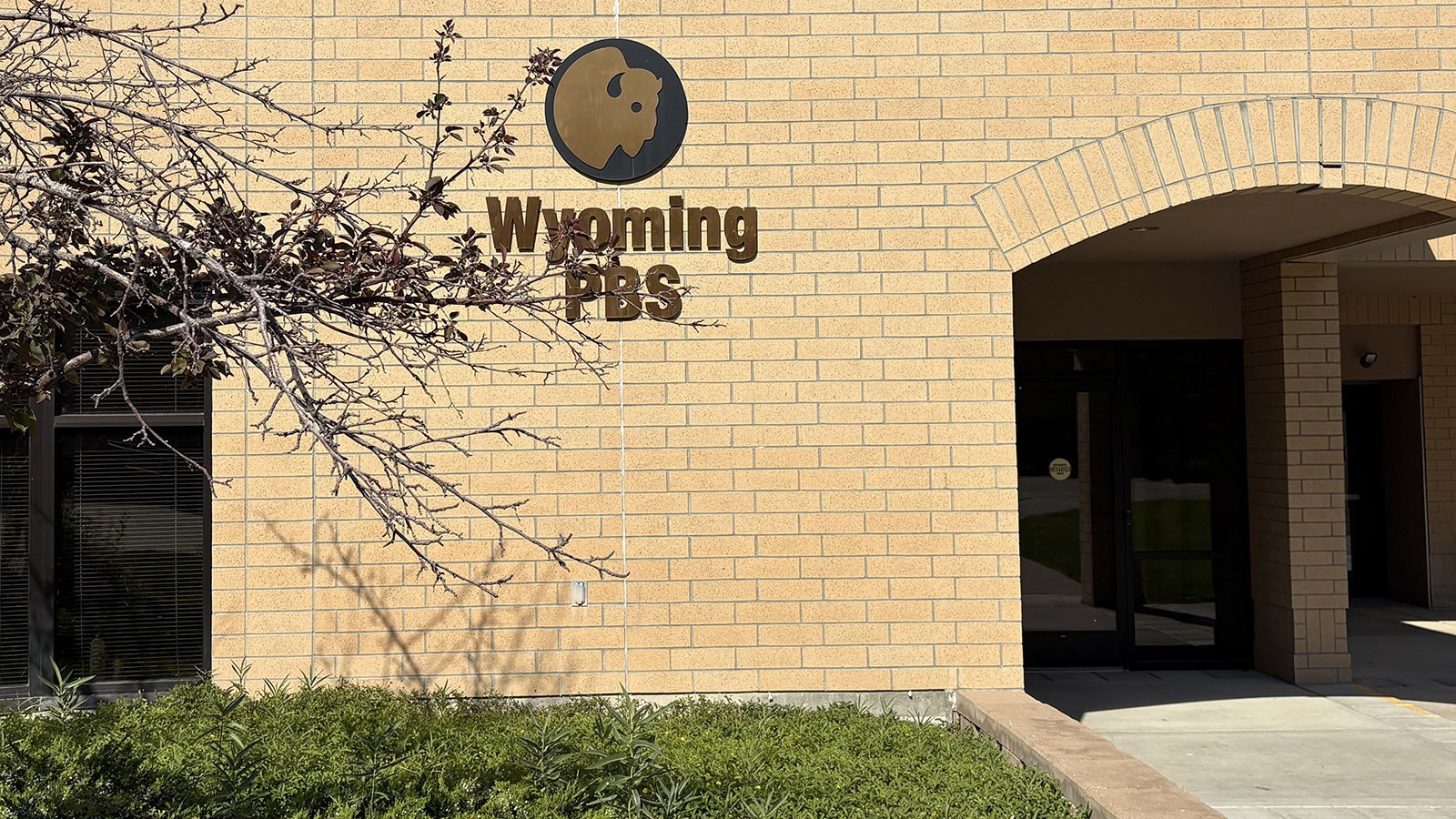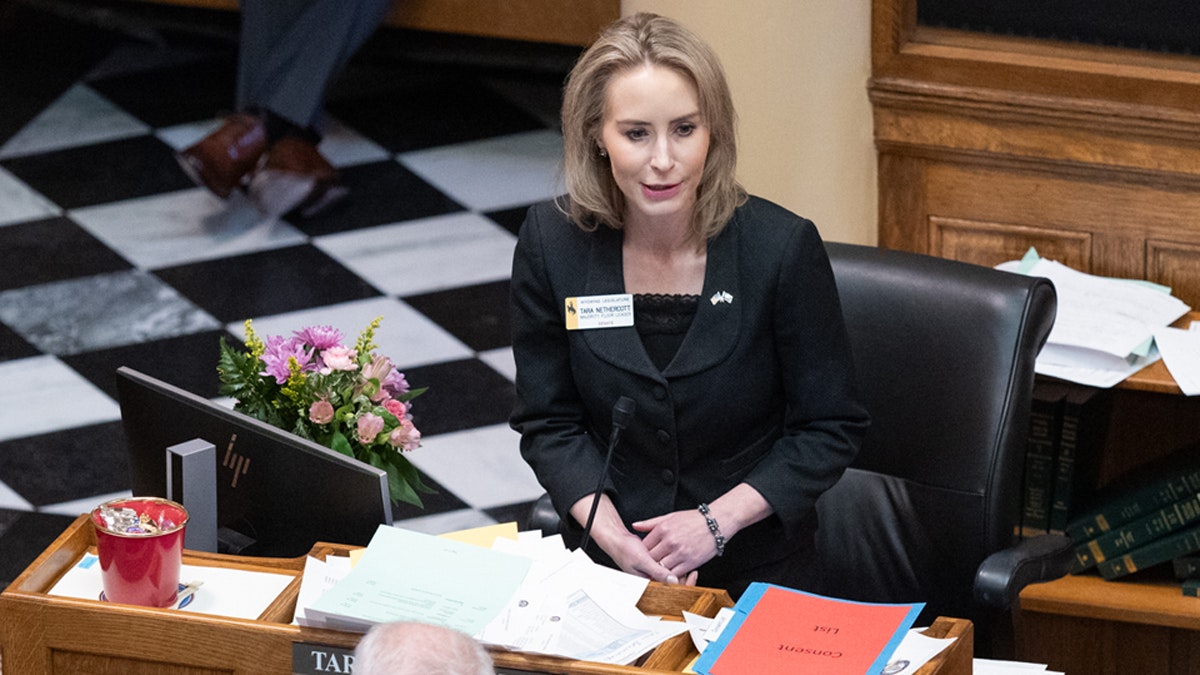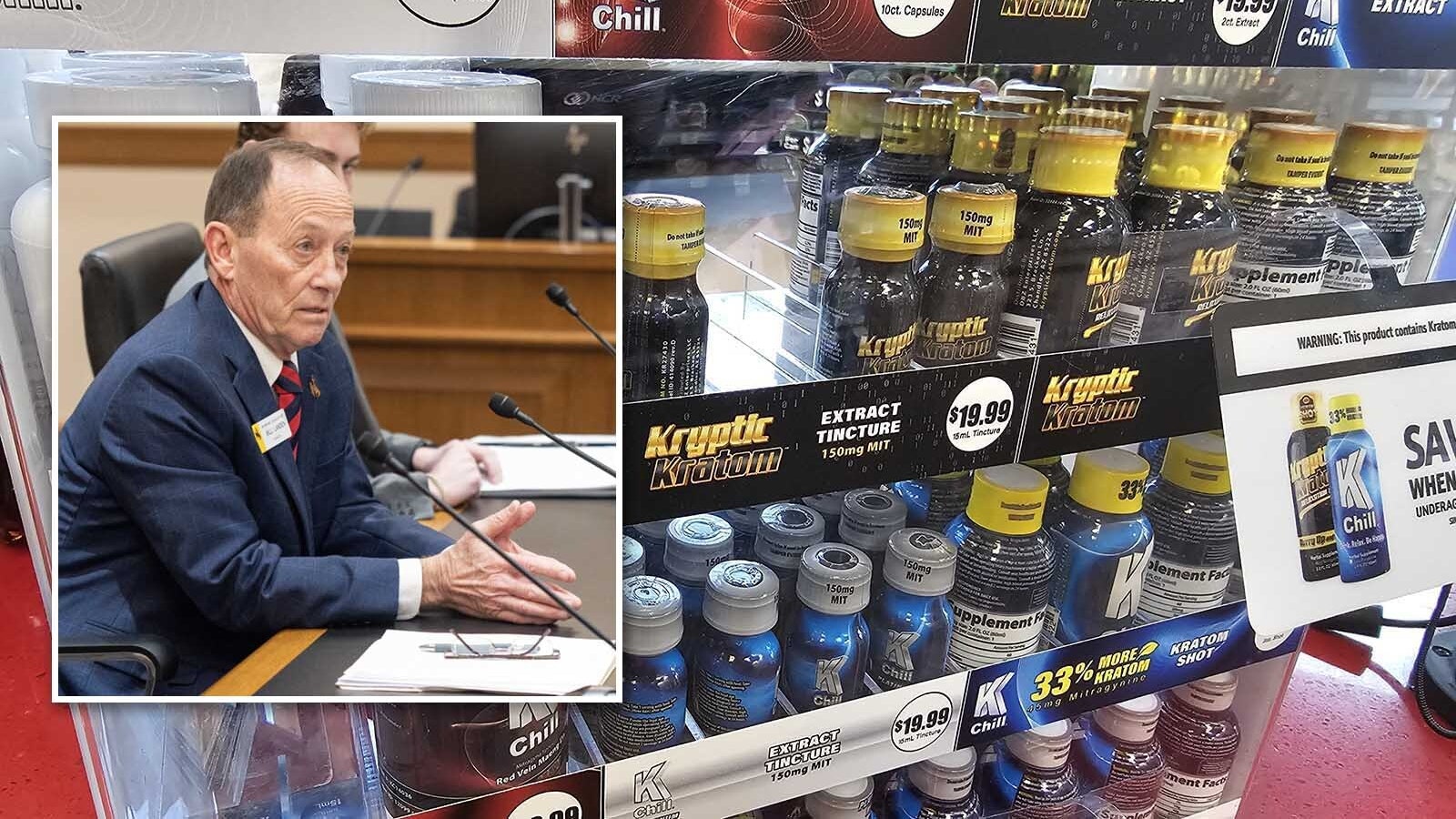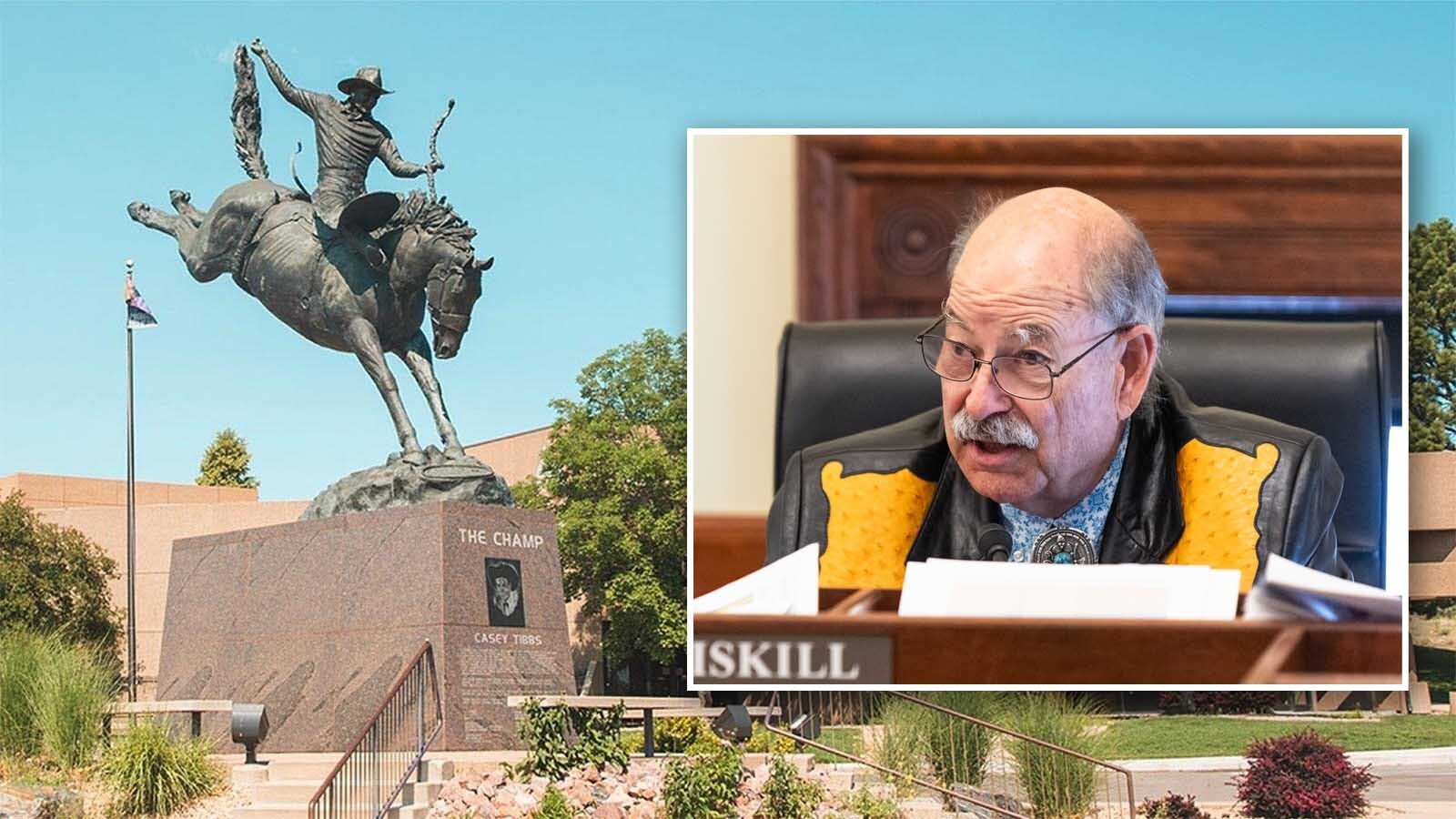The Corporation for Public Broadcasting is shutting down its operations after Congress stripped its federal funding amid claims from Republican lawmakers that CPB-funded media outlets propagate a left-wing, “woke” bias.
For the Wyoming Public Broadcast Service, losing CPB funding represents a budget deficit of $1.4 million annually, or about a third.
For Wyoming Public Media, it represents a 13% budget reduction of $400,000 annually — plus other leveraging and infrastructure losses worth about the same amount.
Both funding losses became a reality when the bill to defund CPB passed July 18.
But with the national organization shuttering operations, this could be a chance for public media outlets funded by it to reflect and reorient their approach across all the taxpayers whose interests they represent, Wyoming PBS CEO Joanna Kail told Cowboy State Daily on Friday.
Kail said prior that lawmakers’ claims of anti-conservative bias — primarily surrounding national publicly-funded media outlets — weren’t entirely unfounded.
She wrote an op-ed reiterating that point when the bill passed.
And Friday, after receiving myriad feedback and some sharp criticism over the op-ed, Kail doesn’t regret it.
“I’m not one to submit opinion editorials, it’s not typically something I like to engage in,” said Kail. “However, this was a monumental time. This is a monumental time for public media.”

‘I Welcome’ Feedback
CPB has managed to survive for six decades, and never before faced the shutdown that is now a reality.
“Yes, I have received thoughts and opinions (from that op-ed) that are difficult to hear,” said Kail. “But they are still opinions; and opinions that disagreed with me — and I welcome them. I welcome those opinions, because that’s my job.”
To Kail, publicly-funded media has an important function of representing their entire taxpayer base, and delivering more public-service oriented coverage than private outlets, which may emphasize flashy or niche news tailored to their specific audiences.
She called that private consumer-driven content “Hollywood news.”
“I have half a million opinions I need to take into consideration when it comes to our programming,” said Kail, referencing the population of Wyoming. “I don’t answer to PBS, or the Corporation for Public Broadcasting. I answer to the citizens and the viewers of this state.”
Kail said she’s hopeful that public media outlets will use the bill’s two-year funding gouge as a time for reflection on ways to better consider those opinions.
As for Wyoming PBS, two thirds of its funding still remain: half in state public funding, and half from the private-market sources of donations and revenues from leasing tower usage to other entities, said Kail. Those tower revenues are vital, she added.
The direct cut of CPB funding isn't the only pain from the federal gouge, she said. CPB negotiated music rights and other privileges on behalf of the smaller outlets, and it also donated money to some of the production companies that feed them content, she said.
Not The Same
Critics of Kail’s guest column surfaced in late July, writing that Kail called the very outlet she runs into question by lending credence to the bias complaints.
“Given Ms. Kail’s background in conservative political circles, it's fair to question whether her leadership approach may introduce partisan influence into what should remain an independent, publicly funded media institution,” wrote Lander resident Sarah Reilley in a July 24 letter to the editor, which also questioned whether Kail released her op-ed ahead of a Wyoming fundraising drive so she could generate more donations for Wyoming PBS.
Central Wyoming College President Brad Tyndall defended Kail’s point Thursday in his own guest column.
CWC holds the license for Wyoming PBS.
Wyoming PBS is not the same as the national PBS outlet, which Kail was critiquing, Tyndall emphasized.
“I do not think it is unreasonable for Ms. Kail to ask the national PBS to listen more closely to a greater audience of rural and diverse voices and to consider expanding its programming slate, or at the very least, to study these needs in good faith,” wrote Tyndall.
“If some viewers judge all of PBS, and by extension Wyoming PBS, as biased, based on how they perceive a single program such as PBS NewsHour, which I happen to enjoy,” he continued, “then PBS must acknowledge that reality and do the extra work of ensuring broad public trust - without sacrificing journalistic integrity.”
Other rural stations have voiced these same concerns toward the national outlet, he added.
“Not attending to, or failing to say clearly, that it is willing to incorporate a more inclusive rural and middle-America perspective has placed stations like Wyoming PBS at existential risk,” Tyndall wrote.
CPB Chair Raised In Shoshoni
Kail in her Friday interview praised CPB Board Chair Ruby Calvert, who is a lifelong Wyomingite and daughter of the late Fremont County legend Dessie Bebout.
Calvert is also a former general manager of Wyoming PBS.
She rose to the helm of CPB last October.
Perhaps Calvert could have rescued the public media funding if given more time, Kail theorized.
“I have so much respect and … love for Ruby Calvert,” said Kail. “I think Ruby really put her Wyoming, her strength, her leadership and ability to be a strong Wyoming woman on that CPB board.”
Calvert did not immediately respond to a Friday afternoon voicemail request for comment.
Very Seriously
In an earlier guest column in Cowboy State Daily, Calvert countered claims of public media bias, saying the taxpayer forms a check on public outlets’ behavior.
“Unlike commercial outlets, public media is held to the highest standards of transparency, accountability and responsiveness precisely because it is responsible to the American taxpayer,” Calvert wrote. “Civic trust is fraying, (and) public media provides Americans with reliable, local reporting and information that empowers citizens to participate in decisions that affect their lives.”
She went on to list public media offerings like severe weather alerts, local coverage and veterans’ issues.
“At around $1.60 per American annually, public media is one of the best returns on investment in the federal budget,” wrote Calvert.
She added in a follow-up text that CPB takes charges of bias very seriously and has developed several programs in recent years for stations and producers to ensure editorial integrity.
Wyoming Public Media
These were points that Christina Kuzmych, Wyoming Public Media general manager, also noted in a July interview with Cowboy State Daily.
The claim of left-wing bias is “understandable,” she said, yet there are several issues at play, such as varying interpretations across people groups, investigative journalists’ hunt for the “smoking gun” in stories they cover, and the “sheer volume of stories covered by news organizations like NPR and WPM.”
Mistakes are bound to surface in so many stories, and both outlets make a point of correcting those, she said.
“At times, though, a listener’s perception of bias is rooted in the fact that they don’t agree with the story,” wrote Kuzmych. “This is a human factor, and understandable.”
She pointed to WPM’s local and regional news, cultural programming and community service information as vital offerings for Wyoming.
And in a Friday email, Kuzmych noted that the outlet "had a plan in place" since it planned for the worst.
"A super motivated audience is helping us bridge the 13% of direct funding a year loss," she wrote. "We started informing listeners about the defunding eventuality early, and our spring fund drive provided additional money in what we call 'concern' donations. The summer drive brought out many 'rage' donors – folks who were upset about the defunding of public broadcasting and increased their pledge or donated to public radio for the first time in their lives."
WPM also had a very successful WyoGives day, where both current and new donors contributed, she said. The outlet froze hiring for non-funded positions, and didn't replace staffers who left. It froze projects that aren't funded - such as the Gillette Wyoming Sounds signal building project.
"The goal was to tighten operations and make sure that audiences didn’t lose the things that make public radio special to them," she said.
WPM's music/streaming rights are paid through the end of year, and contracted for until 2027. But the outlet is looking for alternate solutions there, she said.
Kuzmych added that the entire public radio system seeks to help small, vulnerable stations through mergers with larger stations or networks.
"One of the biggest consequences of defunding is what it does to the fabric of public broadcasting. We’re an intertwined system of large, mid, and small rural and native stations," said Kuzmich. "They each contribute stories to NPR and bring diverse voices and opinions to the fore. If the small stations fail, their voices will be lost, and we, as a nation, will be all the poorer."
Congress could have sought other, "less drastic solutions," she said.
"The irony is that in its zeal to destroy NPR, Congress managed to handicap a national network of stations whose main purpose is to serve their constituents with local programming largely unassociated with NPR," said Kuzmych. "WPM, for example, carries only 9 hours of NPR programming on a weekday. The rest is from other distributors or locally produced."
Clair McFarland can be reached at clair@cowboystatedaily.com.





